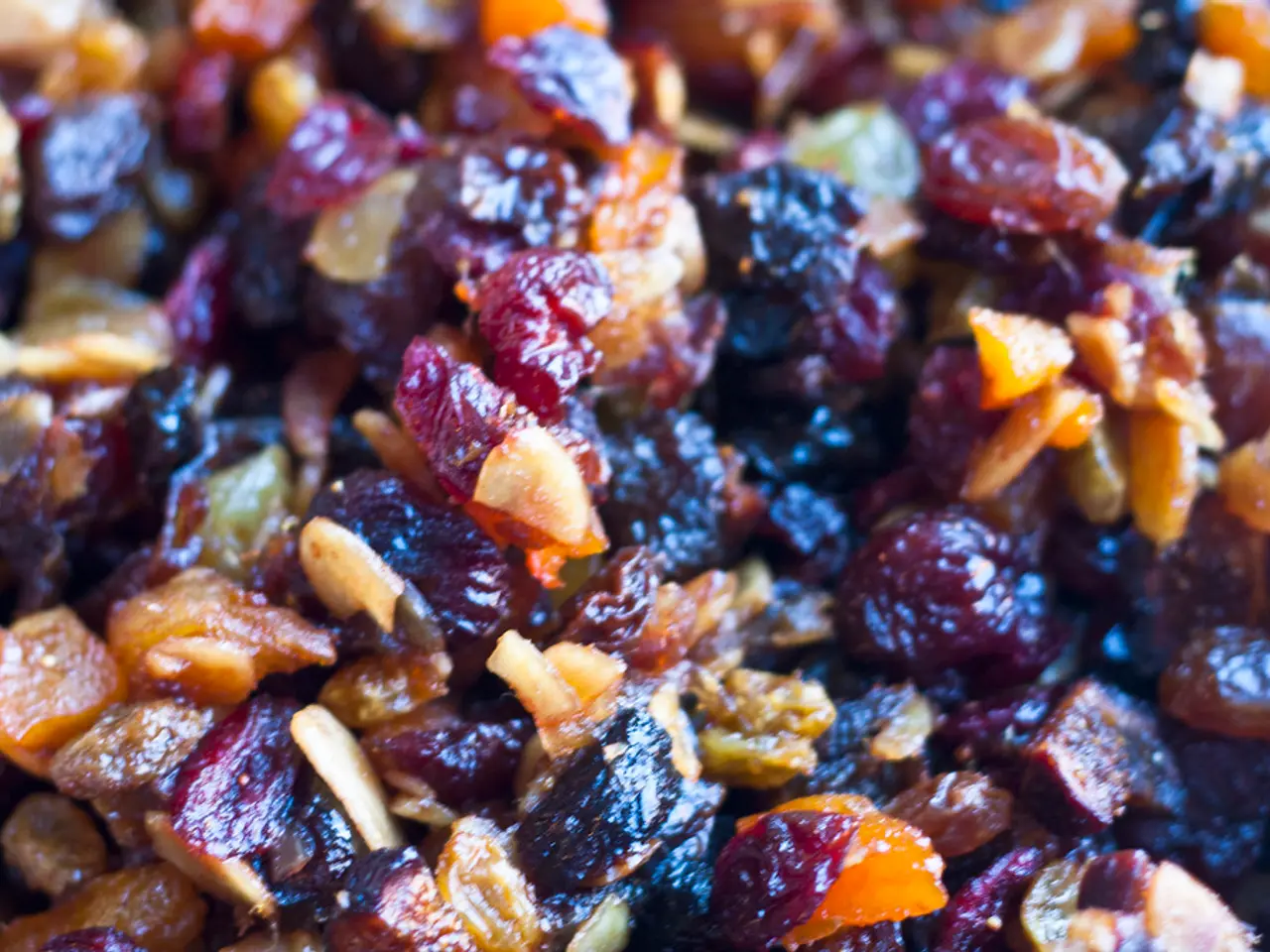Beer-accompanied snack to vanish from Belarusian retail outlets
In a recent report, the State Standard has discovered a series of violations in the production of several popular Russian snacks and food products. The findings, which could potentially pose health risks to consumers, have raised concerns about the safety and quality of some of the country's favourite brands.
One of the most alarming discoveries was made in the 'Hmeli-Suneli' seasoning blend by 'Priravych'. Tests revealed that the seasoning contained E. coli and mold at a level 21 times higher than the permitted level, posing a significant health risk to consumers. Similarly, the 'Hmeli-Suneli' seasoning blend was also found to contain 3.4 times more mesophilic aerobic and facultatively anaerobic microorganisms than permitted.
Another brand, Chipka, has been under scrutiny for using an unauthorized food additive, potassium sorbate (E202), in the production of their fish products. Additionally, the production of Chipka brand fish products was found to contain synthetic dyes Ponceau 4R (E124), Tartrazine (E102), and Sunset Yellow FCF (E110), which are not permitted in such products. As a result, the 'Smoked Fish Skin 'Trout' Flavored' product from Chipka has been banned from being sold with beer.
The 'Classic' soy sauce from the Columb brand, a product of Belarusian origin, was also found to have a higher level of preservatives than allowed. Specifically, the soy sauce contained a combination of sorbic and benzoic acids at 1.21 g/kg, exceeding the maximum permitted level of 1 g/kg.
The search results do not provide information about specific manufacturer brands of the snacks banned by the State Standard when sold with beer. This lack of transparency has raised questions about the accountability of the food industry and the safety of the products being sold to consumers.
State Standard specialists have also reported the presence of bacteria and microorganisms in popular soy sauce and seasonings that could harm consumers' health. The report serves as a reminder for consumers to be vigilant about the food they consume and to check the labels for any potential health risks.
The State Standard has vowed to continue its efforts to ensure the safety and quality of food products in Russia, and to hold manufacturers accountable for any violations. Consumers are encouraged to report any suspicious food products to the authorities to help maintain the integrity of the food industry.
Read also:
- Apparition's Significance and its Delivered Messages - as discussed by Sensenmann
- Explored the Popular Health Assessment with a Queue of 100,000 Aspiring Participants - Here's My Unadulterated Opinion
- Hearing impairment condition: Recognizing symptoms and management approaches
- Exploring Recurring Actions in Mature Individuals: An Analysis of Persistent Actions in Adults' Daily Lives








